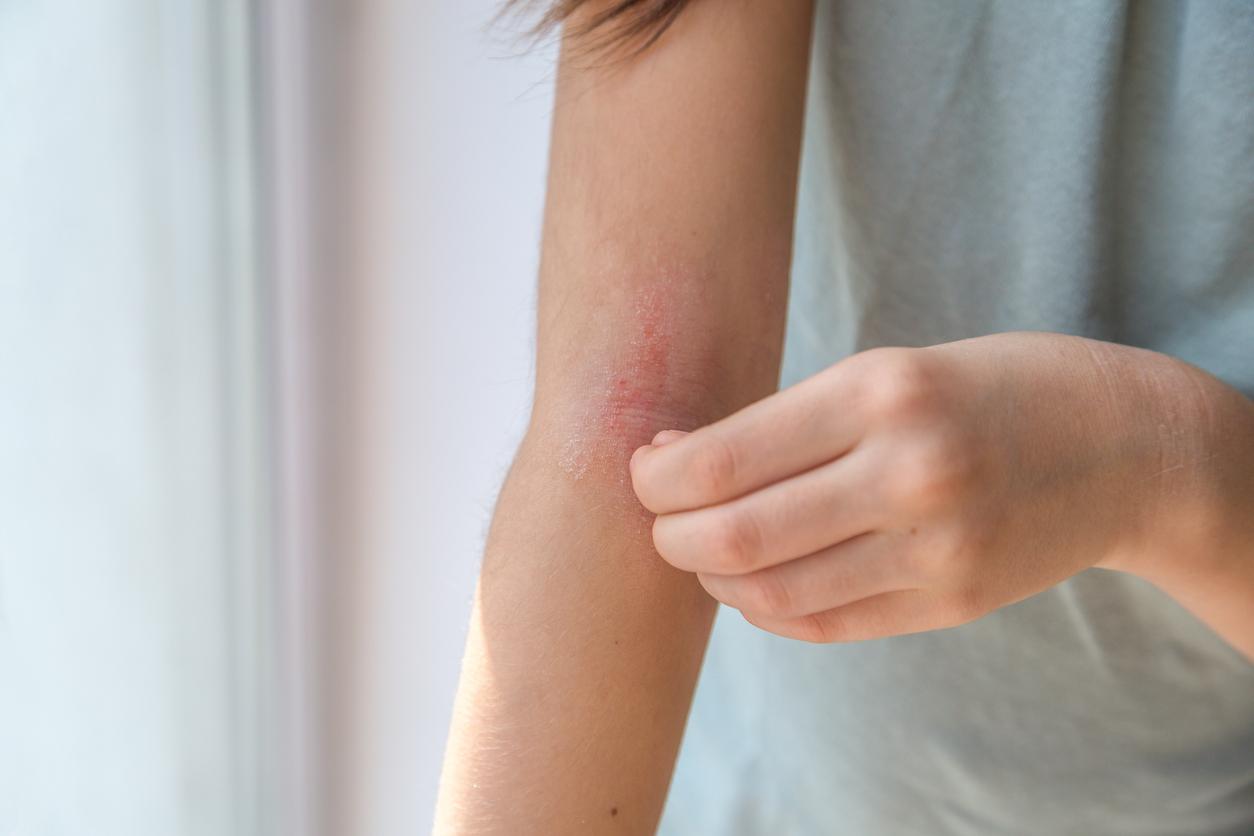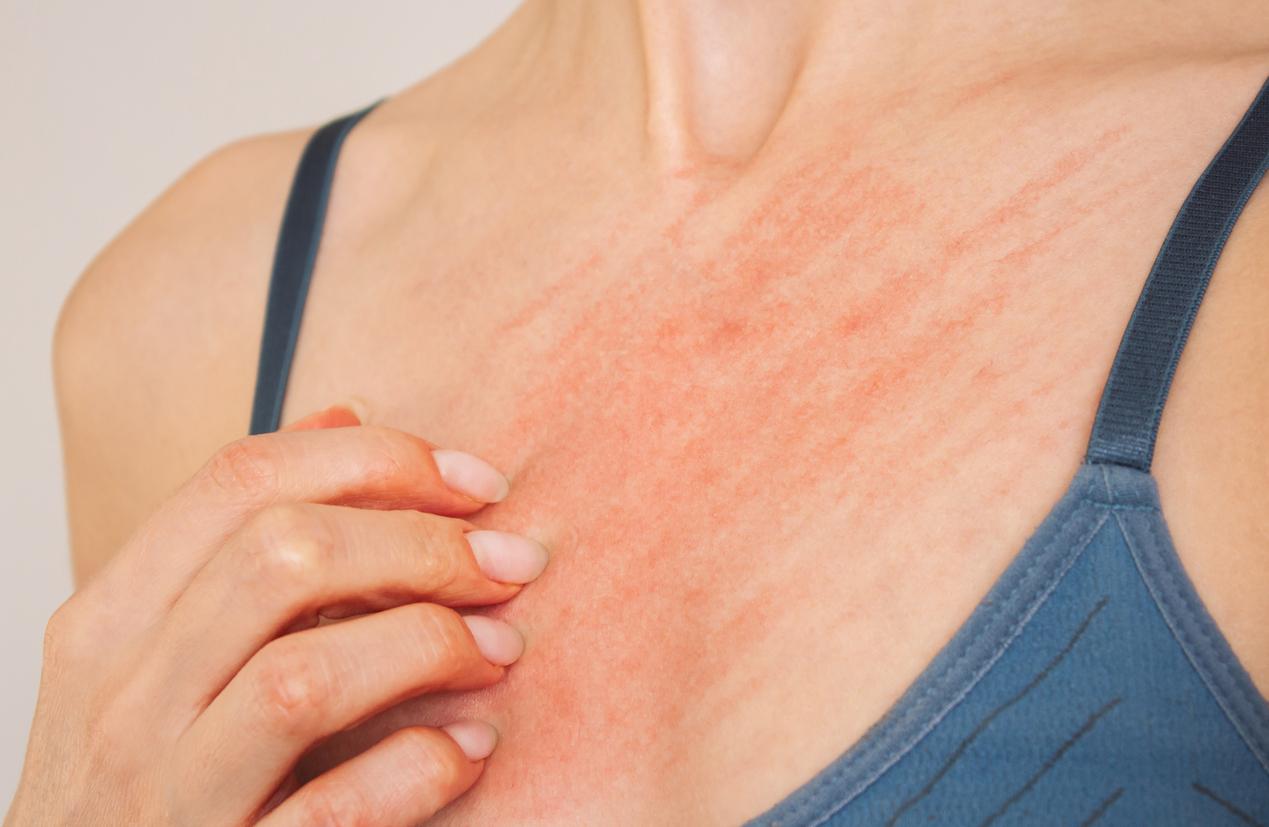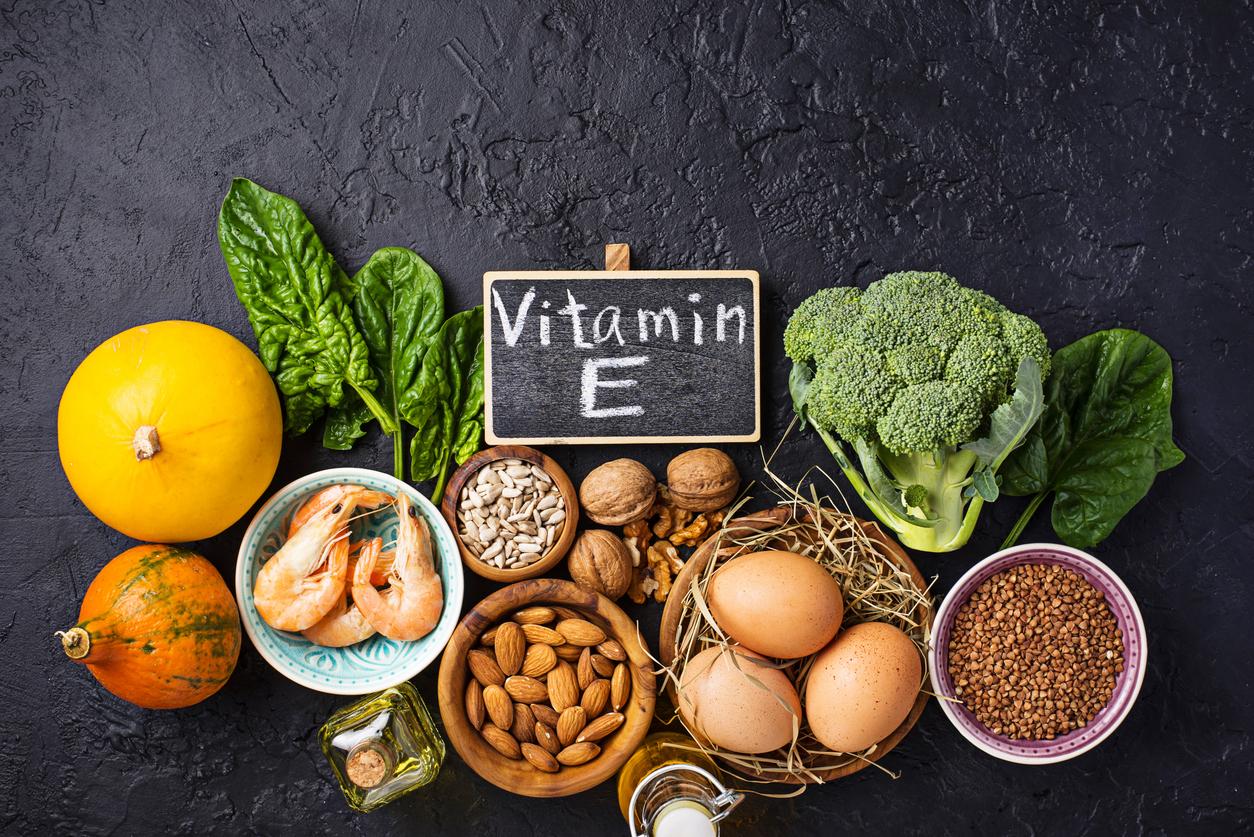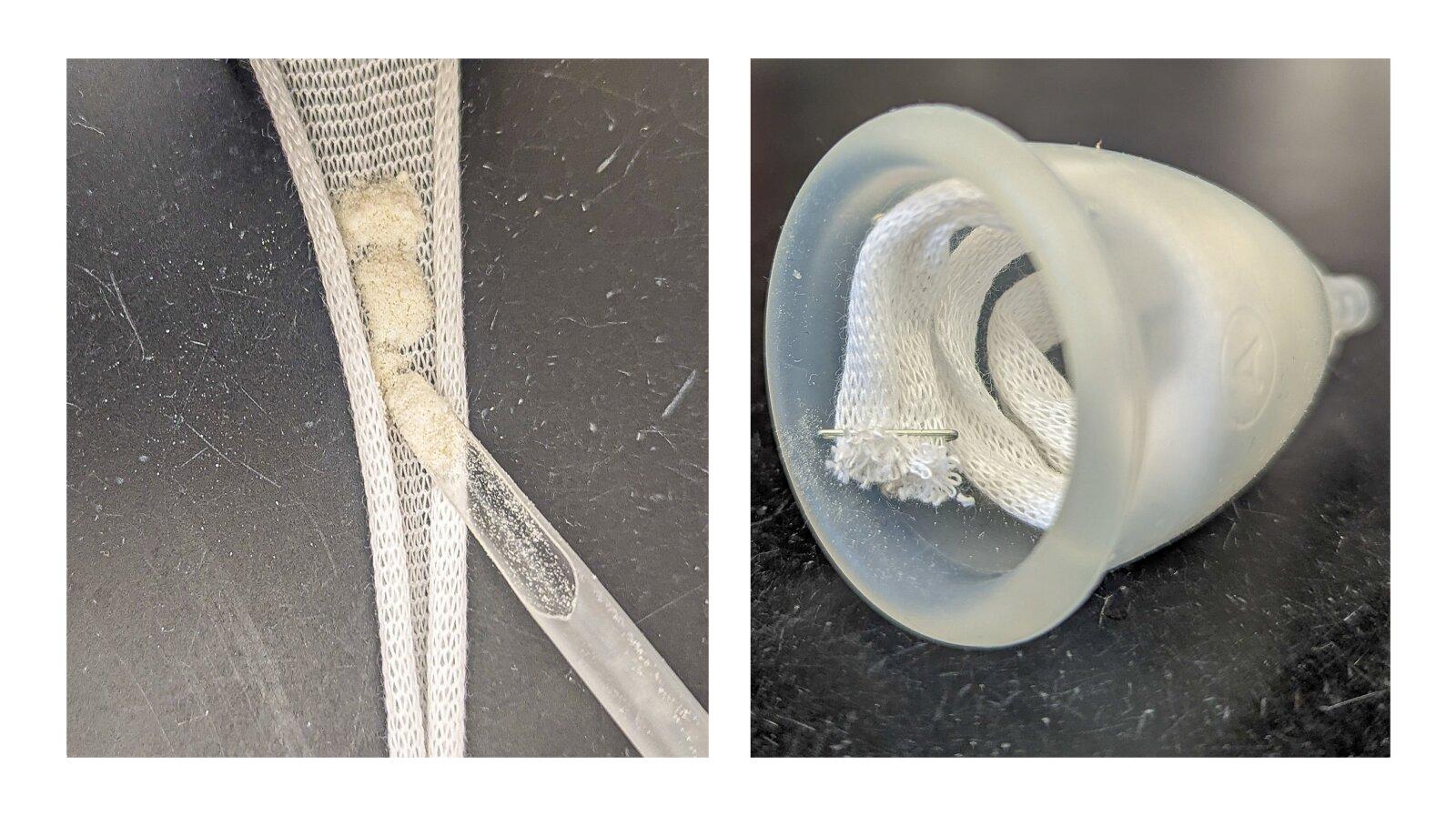Eczema: how to properly moisturize the skin?
In case of eczema, the enemy of hydration being water which causes dehydration by evaporation, Dr. Paul Dupont, dermatologist, recommends always drying the skin completely (without rubbing so as not to irritate) to eliminate all traces of moisture, or even to wash without water or soap, but with a liniment (Eczébio type, available in pharmacies). Liniment that can also be used as a cream, to be applied to irritated areas. Oils rich in fatty acids, such as black cumin oil or safflower oil, are very useful for deep rehydration. Finally, aloe vera gel can also be a winning option.
>> Beware of so-called moisturizing products, but which contain sensitizing preservatives (methylisothiazolinone for example), parabens, certain perfumes or even certain allergenic essential oils. Beauty product labels should be scrutinized, but chromium derivatives in household products or even plastic gloves are also at risk of causing an eczematous reaction.
How to avoid attacking the skin?
“The bath, if it is not too hot and does not last more than 5 to 10 minutes, is a good option, says Stephanie Dray, especially if it is enriched with chamomile or lavender hydrosol (1 capful directly in the bath water), Epsom salt (or black sea salt) or oatmeal (1 tablespoon) . » For a gentle and non-drying wash for the skin, forget the shower gels and opt for a surgras soap.
Eczema: how to relieve itching?
A few sprays of very cold thermal water (to be stored in the refrigerator) can quickly calm the itching. Without rubbing, the excess water is removed with a compress. The naturopath suggests a synergy of essential oils that calms the itching, accelerates healing and reduces inflammation, to be applied to the lesions once a day for five days at the height of the crisis.
- Recipe : fill a 30 ml tinted glass bottle with 25 ml of nigella (or evening primrose) vegetable oil, then top up with 1 ml of true lavender HE + 1 ml of Roman chamomile HE + 1 ml of HE of palmarosa (contraindicated for pregnant and breastfeeding women and children under 6 years old).
How to take into account the terrain?
“Gentle support for the liver makes it easier to eliminate organic waste that tends to clog our ground, helps reduce inflammation and space out attacks”, says naturopath Stéphanie Dray. In detox, she advises taking milk thistle or desmodium in the form of ampoules or capsules (1 ampoule or capsule per day), as a three-week cure at seasonal changes and outside of flare-ups.
How to curb stress?
All methods to eradicate stress are good to take! Breathing techniques, sports, walks in the fresh air or yoga can be part of everyday life. Good sleep management is also important, because we are more sensitive to surrounding stress when the nights are not restorative.
At the same time, Stéphanie Dray suggests betting on adaptogenic plants, which improve the body’s general resistance to external aggressions. Rhodiola in particular, soothing, but also ashwagandha, interesting because it regulates the central nervous system (100 to 350 mg of one of these plants twice a day in dry extract). Other plants can help: lemon balm which promotes relaxation, or passion flower which reduces nervousness, to follow as a cure for 1 to 2 months (the equivalent of a tea ball of dry plants per cup, 1 to 3 cups per day).
“In micronutrition, I recommend starting with magnesium, which is effective in gaining serenity, says our expert again. At a rate of 300 mg/day in the form of citrate or glycerophosphate ideally, as a cure for one to two months, to be renewed if necessary.
How to make an anti-inflammatory plate?
An anti-inflammatory and hypotoxic diet is composed of the most raw foods and if possible organic. Exit industrial and/or ultra-processed dishes, red meat or charcuterie at each meal, excess cheese or dairy products, cereals rich in gluten, coffee all day long, refined sugars or alcohol. Stéphanie Dray advises to stock up on fruits and vegetables, rich in antioxidants which fight against cellular aging and foods well endowed with omega 3 (sardines, mackerel, herring, rapeseed, flax, etc.) and omega 9 (olive oil for example), because these polyunsaturated fatty acids act against inflammation and restore the hydrolipidic barrier of the skin.
Eczema: how to support the microbiota?
Certain strains of probiotics are more specifically adapted to the imbalance of the microbiota linked to eczema: Lactobacillus rhamnosus, in particular, will effectively rebalance the flora and regulate digestion. To be taken as a cure, following the dosage in the box.
Dr. Dupond recommends combining the probiotic with a course of anti-inflammatory and regenerating organic evening primrose oil, to be taken in the form of capsules (avoid bottles, because the active ingredients contained in the oil are fragile), at a rate of 1 g per day for a minimum of 6 months.
Our Experts:
- Dr Paul Dupont, dermatologist and author of Take care of your skin naturally, ed. Eyrolles
- Stéphanie Dray, doctor of pharmacy, naturopath.
Read also :
- Eczema and high heat: what recommendations?
- Naturopathic advice to relieve eczema
- Contact eczema: the main allergens



















